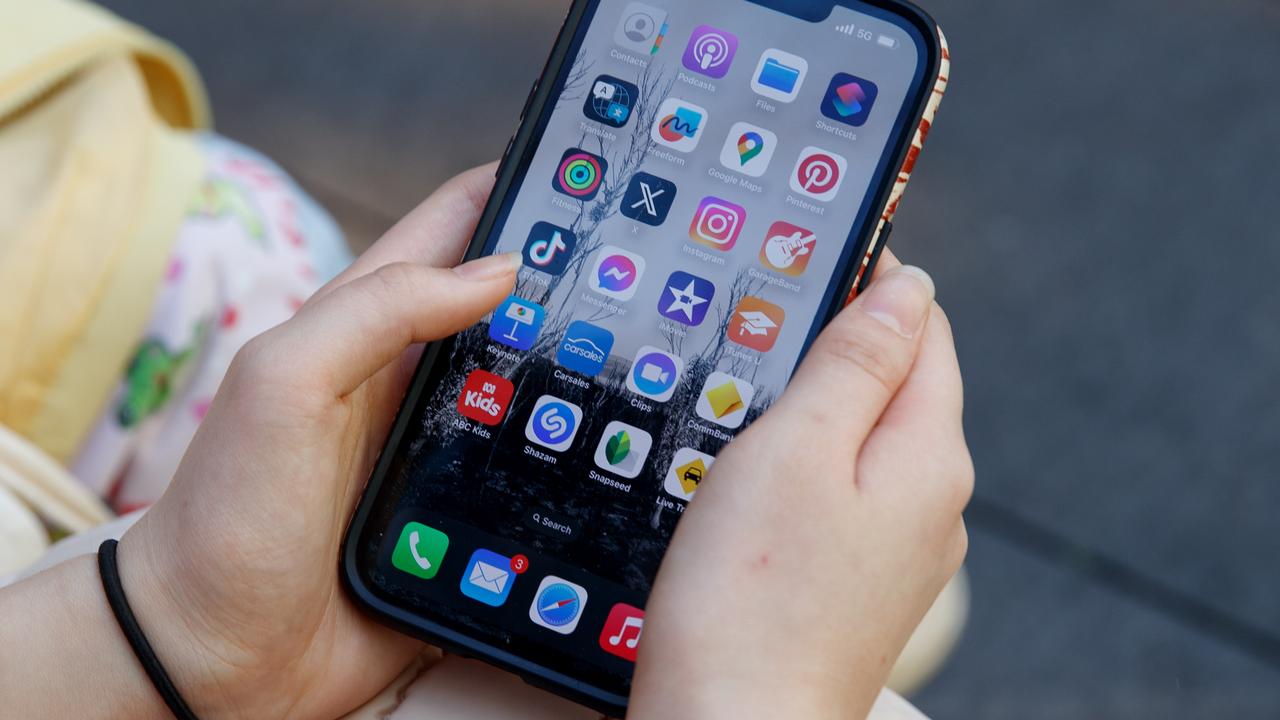Lithium-ion batteries: ‘Serious’ warning about popular product
Consumers have been warned about the dangers of a popular product present in most phones and tablets, after at least one deadly explosion.
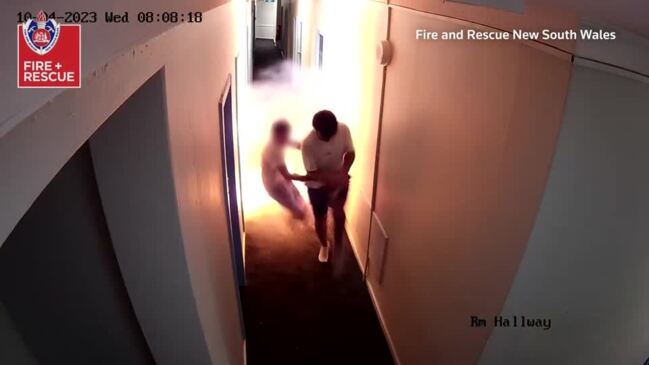
Smartphone
Don't miss out on the headlines from Smartphone. Followed categories will be added to My News.
Consumers have been urged to use and store their lithium-ion batteries more safely after a series of dangerous fires, at least one of which was deadly.
The Australian Competition and Consumer Commission (ACCC) released a new report on Thursday that warned of the dangers of the popular product.
Lithium-ion batteries, also known as Li-ion batteries, are found in a huge number of household products, including portable chargers, cordless vacuums, kids toys and camping equipment, as well as “most” mobile phones, laptops, tablets, e-scooters, e-bikes and power tools.
But, despite their ubiquity, the report found Li-ion batteries carry “rare but serious fire hazards”.
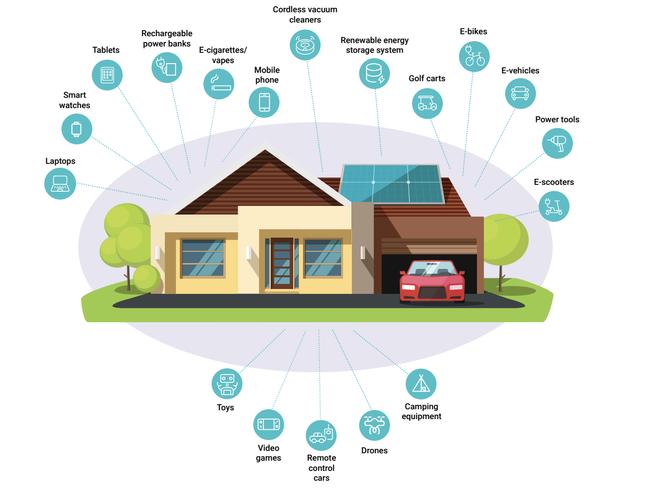
Though all types of batteries present a level of risk, the ACCC said Li-ion battery failures can be “particularly catastrophic” due to the flammable and volatile liquid the batteries contain.
“Heat is a by-product of the normal function of a Li-ion battery. However, in an uncontrolled failure, the combination of heat and the volatile liquid electrolyte solution can cause a serious and self-sustaining fire,” the ACCC said.
“These fires can be difficult to extinguish and may spontaneously reignite. Further, as multiple cells are often linked within a battery pack, this may create a chain reaction causing a larger fire event.”
At least one Australian has reportedly died in a lithium-ion battery fire, the ACCC said.
In July this year, an e-bike with a faulty Li-ion battery exploded in a Sydney home, sparking a fire that tore through the home’s ground floor and destroyed a nearby vehicle. Fourteen fire trucks were called to extinguish the blaze, with firefighters staying overnight to prevent the battery from reigniting and remove several other Li-ion batteries from the scene.
And, just yesterday, a Li-ion battery exploded at a Sydney hostel, sending a fireball blazing through the hallway and injuring at least one guest.
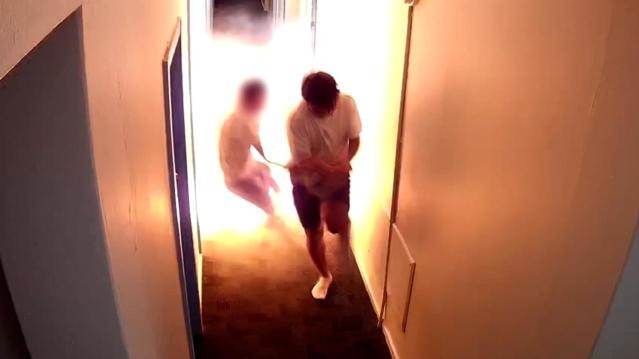
The ACCC said it had received 231 product safely reports relating to the batteries in the past five years, with an estimated 89,000 products recalled.
Of the 23 product recalls related to Li-ion batteries, 20 were due to fire risk or from overheating or short-circuiting.
“We are concerned by increasing reports of lithium-ion battery fires resulting in property damage and serious injuries, including burns, chemical exposure and smoke inhalation,” ACCC deputy chair Catriona Lowe said.
The ACCC said, while national data on trips to the emergency room was hard to come by, figures from Victoria helped to show the risks of Li-ion battery incidents.
Between 2016 and 2022, Victorian Injury Surveillance Unit data showed 19 emergency room presentations for injuries involving or potentially involving Li-ion batteries. More than 70 per cent of those cases involved burns, with the wrists and hands most commonly affected; about one-third of those patients were admitted to hospital for further treatment.
Several states also reported a number of fires due to Li-ion batteries that had exploded.
Queensland Fire and Emergency Services recorded 157 fires between 2021 and 2023 caused by Li-ion batteries, while the WA Department of Fire and Emergency Services reported 81 incidents in 2022. Fire and Rescue NSW reported 149 battery-related incidents between 1 January and 15 September 2023, a 16% increase on the same time last year.
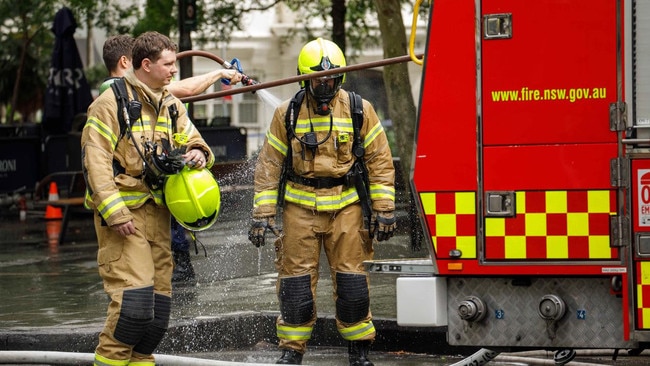
The ACCC said demand for Li-ion batteries was only increasing as our lives become more tech-oriented. By 2026, it’s estimated that the average Aussie household will have 33 devices powered by Li-ion batteries.
“The use of Li-ion batteries in consumer products is attractive as they can be portable, have a high energy density and have better power efficiency than other battery types,” the report read.
“As the prevalence of Li-ion batteries in Australian homes increases, we can expect an increase in Li-ion battery related incidents.”
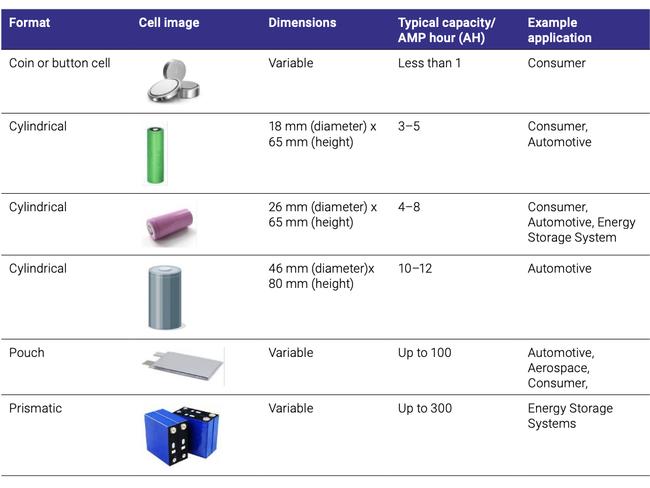
But there were a few things the ACCC urged consumers to do to prevent Li-ion battery fires.
Those included using safe charging practices for devices, keeping Li-ion batteries away from heat, moisture and damage, buying high-quality batteries and disposing of them safely.
“Consumers should avoid mixing and matching chargers, unplug products when fully charged and charge batteries in a cool, dry place and away from combustible materials like beds, lounges or carpet,” Ms Lowe said.
“Check your lithium-ion batteries for overheating signs of swelling, leaking or venting gas and immediately stop using your product if these signs are present.”
There were even safety concerns at the end of an Li-ion battery’s life cycle, the ACCC said.
Lithium-ion batteries are more likely to catch fire when exposed to heat and moisture, or crushed — common conditions in garbage trucks and household waste facilities.
“Consumers should keep lithium-ion batteries out of household rubbish and check recyclemate.com.au and bcycle.com.au for information about safe disposal,” Ms Lowe said.
“We recommend that government and industry continue to develop solutions to ensure lithium-ion batteries are safely designed and can be sustainably disposed.”
Get in touch — chloe.whelan@news.com.au
Originally published as Lithium-ion batteries: ‘Serious’ warning about popular product




